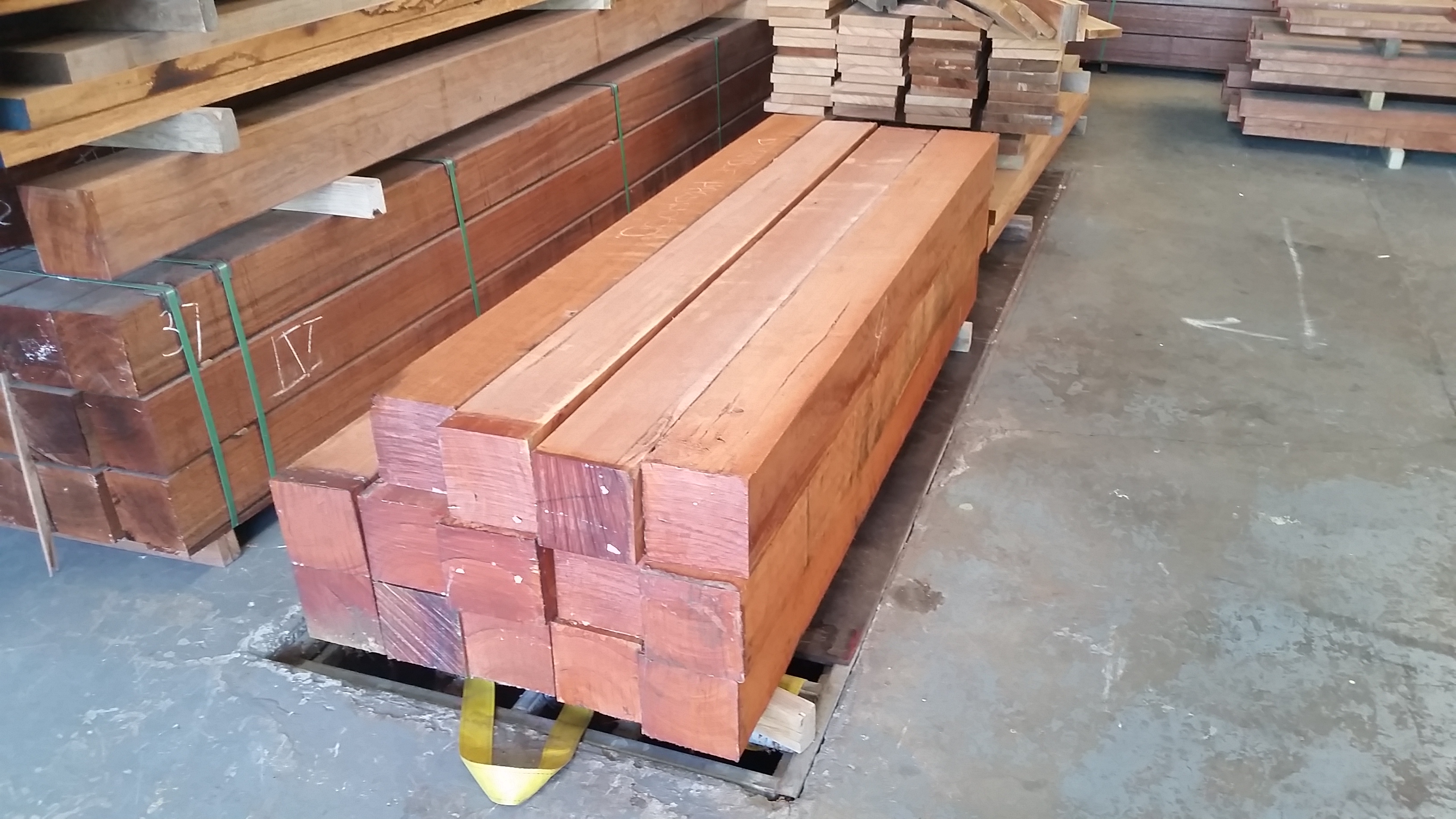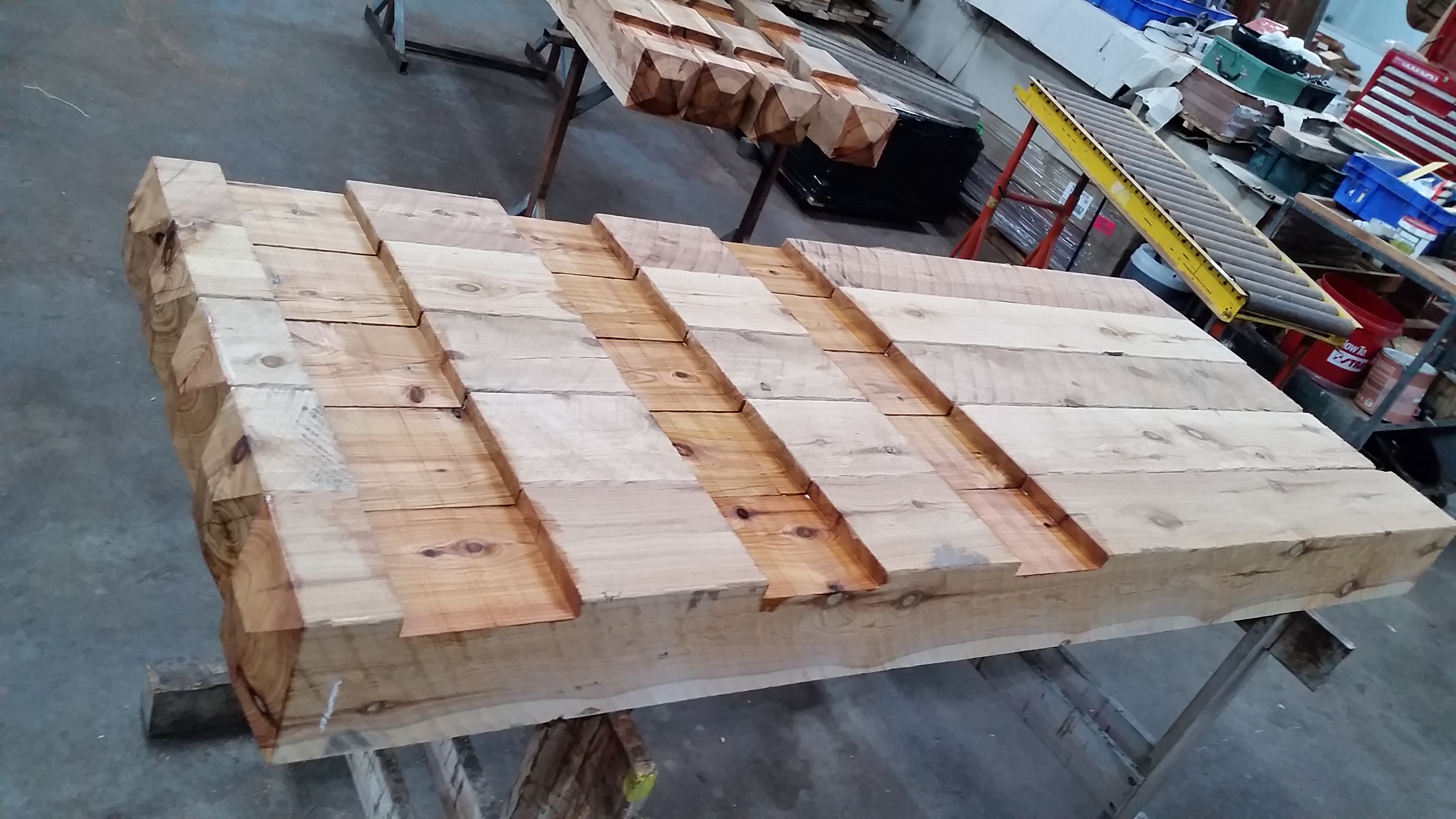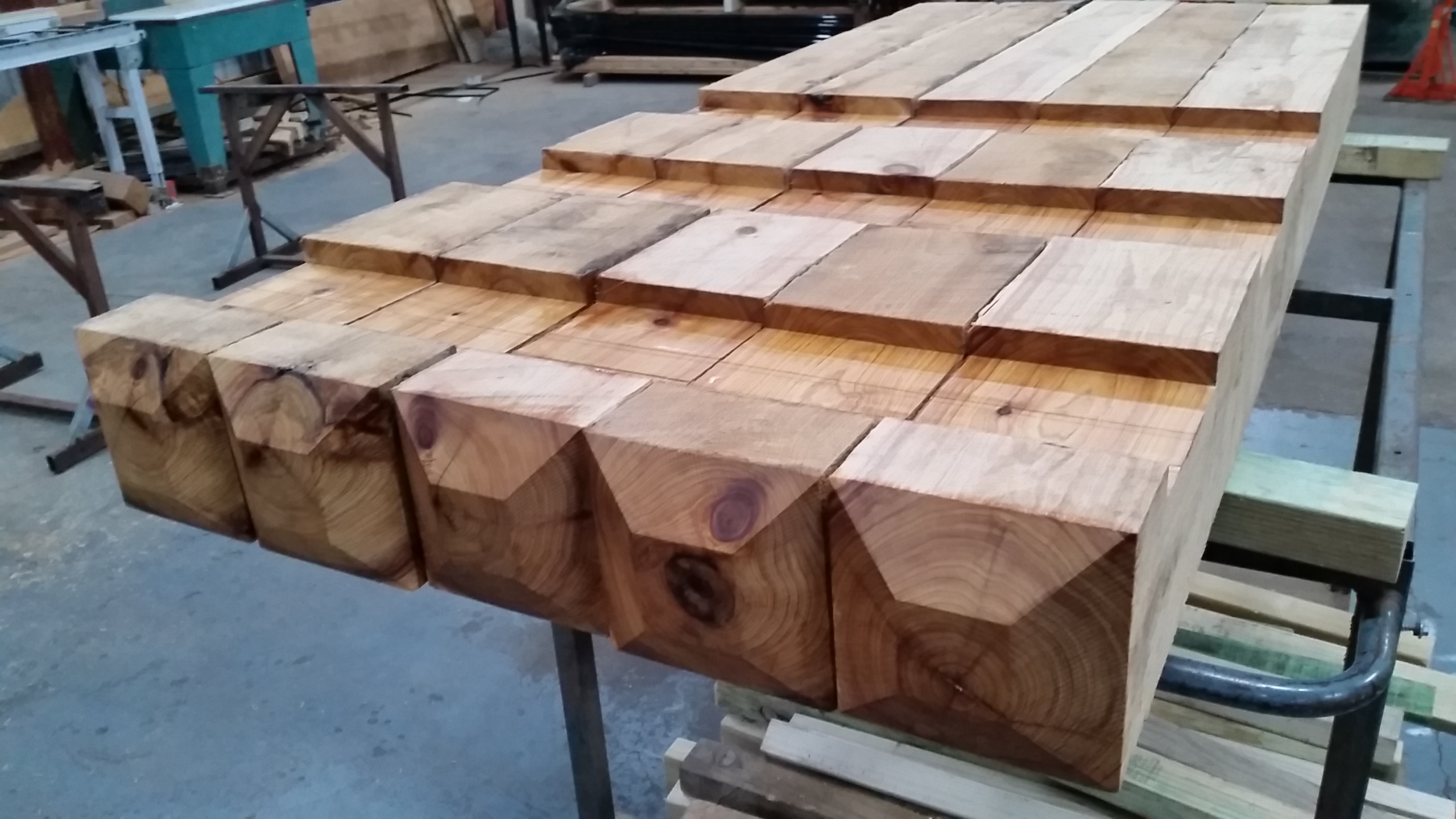Fence post species choice is very important
The timber species you choose should be class 1. or 2. in-ground durability (sometimes class 3. is ok if the post is substantial and is installed correctly in concrete to allow for drainage). if you cannot find seasoned timber you should use a stable species, or at least install it at the right time of year (in southern states, this is late Autumn).
Stable species with minimal shrinkage are kwila (class 2. i/g), native white cypress (class 2. i/g) and cypress macrocarpa (class 3. i/g)
Less stable species like ironbark (class1. i/g) grey box (class1. i/g) spotted gum (class 2-3. i/g) blackbutt (class 2. i/g) should be installed in late Autumn. Any larger post than 150×150 becomes very unstable. Dense hardwoods dry slowly- a 200×200 post can take 6-8 years to season/ stabilize.
Termite resistant and fire resistant species- Merbau BAL 29, Ironbark BAL 29, Native Cypress BAL 12.5 (Recently southern region supply passed tests to BAL 19, but not rated yet.)
Acclimatizing coating in our harsh, dry climate are crucial. Cutek or we stock Spescoat Deep treat are excellent for slowing down the drying process. Deep treat should not be used on laminated timbers.
We stock-Diggers Eco In-Ground Timber Protecta is a non hazardous ‘creosote alternative’ that provides a tough bitumen coating to improve protection against moisture and deterioration on timber and masonry surfaces. … Diggers Eco In-Ground Timber Protecta is perfect for things such as: Fences, veranda posts and sleepers.




